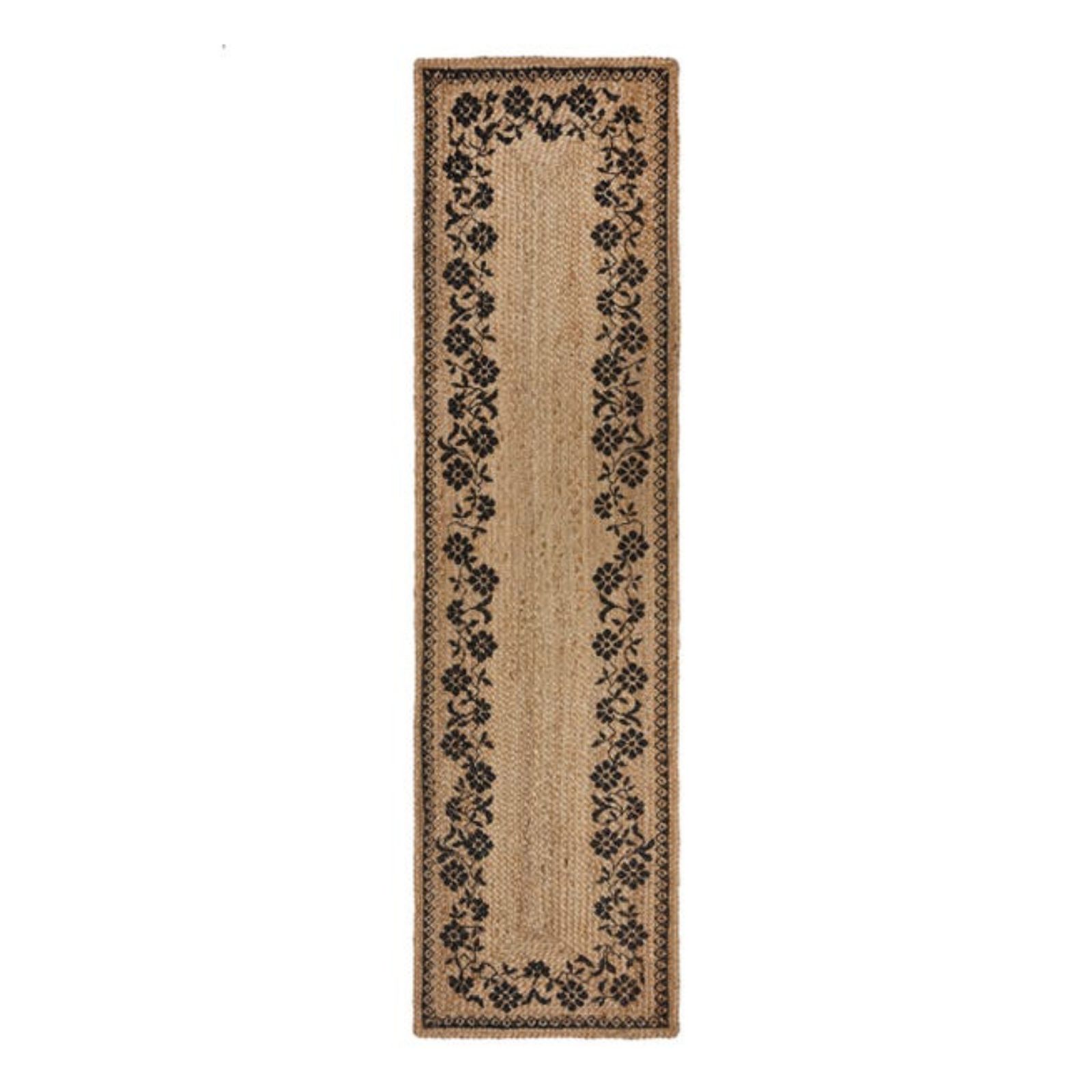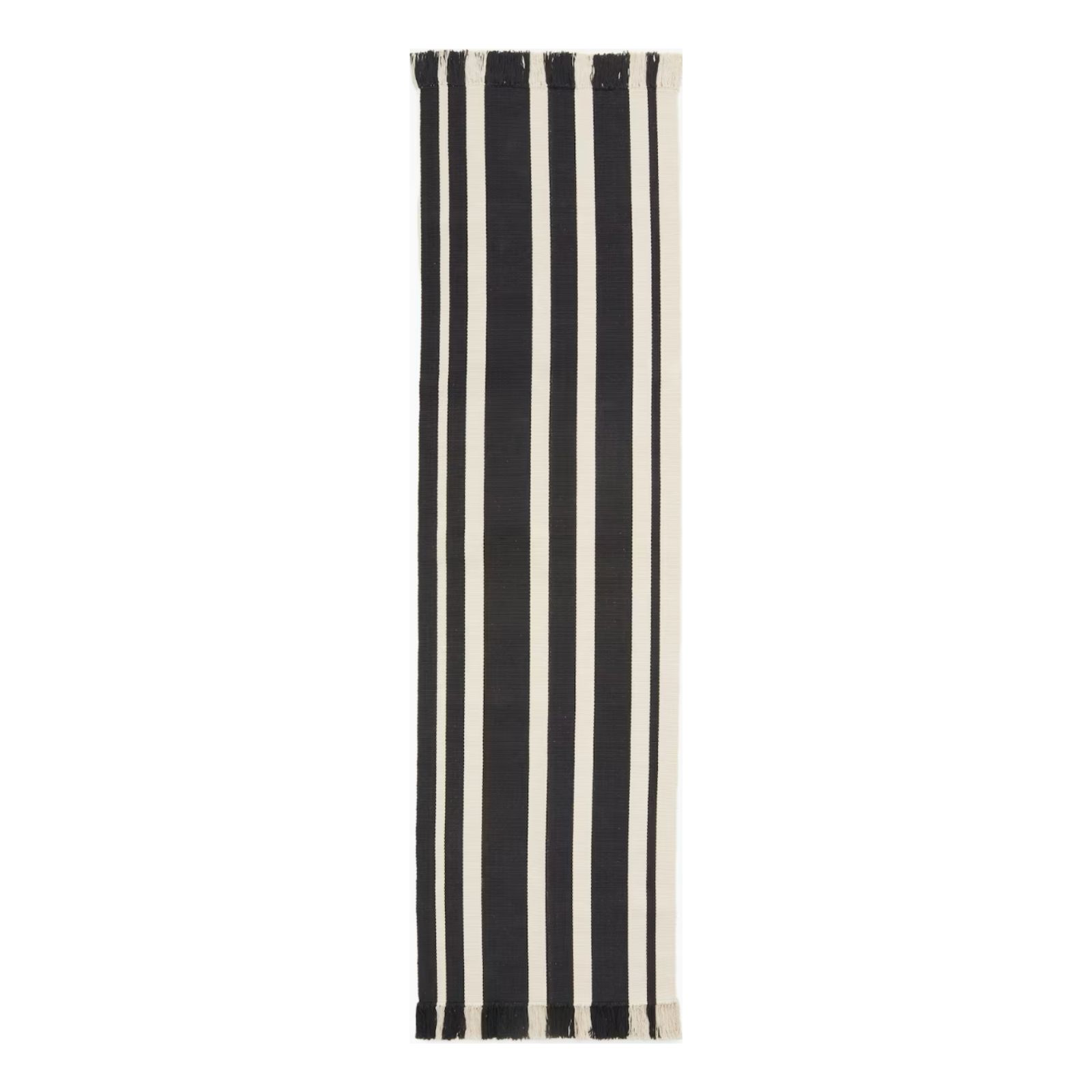7 things you need to consider before buying a hallway runner - this is how to choose the perfect one for your space
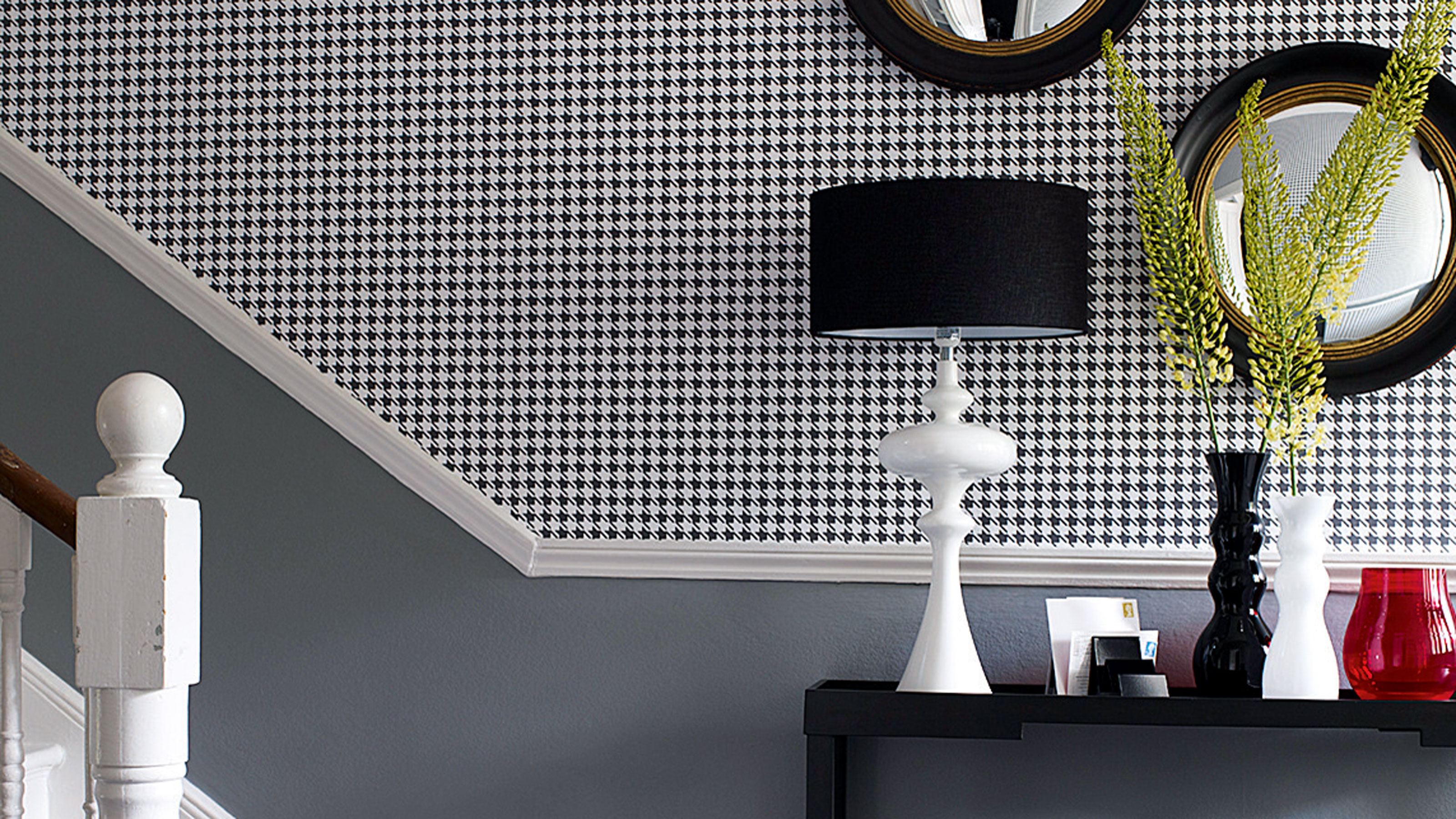
Often overlooked, the hallway is a space that, with a bit of creativity, can be transformed from a simple area for shoes, coats, and mail into a welcoming and inviting entrance to your home. One of the key pieces that can change how this space feels is choosing the right hallway runner.
Hallways come in all shapes and sizes. Long, short, narrow and wide, and they’re the first and last thing we see when we come and go from home. Because of that, getting the look and feel of your hallway runner ideas just right is crucial for setting the tone of your space. With all the foot traffic they get, it's important to strike the perfect balance between style and practicality.
Luckily, there’s a huge range of hallway runners out there, so you’re bound to find one that fits your home’s vibe while adding both comfort and flair.
To make your decision a breeze, we’ve asked our experts for their top rules for buying a hallway runner. Their tips will help you find the perfect piece to fit your space and style with ease!
1. Size up your space
It might seem as easy as picking any runner off the shelf, but getting the size right is one of the top things to consider when buying a hallway runner. Runner rugs are often mistaken for standard area rugs but they have a different job. While area rugs cover larger spaces, runners are specifically designed for narrow areas like hallways.
The key is to find a runner that strikes the right balance, one that doesn’t overwhelm the space by butting up against the walls and looking like wall-to-wall carpet but also doesn’t get lost in a hallway that's too large.
Once you’ve figured out the length you need, it’s time to think about the width. Cassandra Leiz, Senior Creative Director at Ruggable has a great tip ‘The standard rule is that a runner should fill the space while leaving a three-to-six-inch border of bare floor around it.’ This little trick ensures your hallway looks well-framed and balanced. And don’t forget to centre the rug in the space for the best look.
Get the Ideal Home Newsletter
Sign up to our newsletter for style and decor inspiration, house makeovers, project advice and more.
If you want to get it just right, consider going the custom route. Many companies like the Rug Seller or Roger Oates offer bespoke runners that not only match your personal style but also fit your hallway perfectly. This way, you’ll end up with a runner that’s just right in every way!
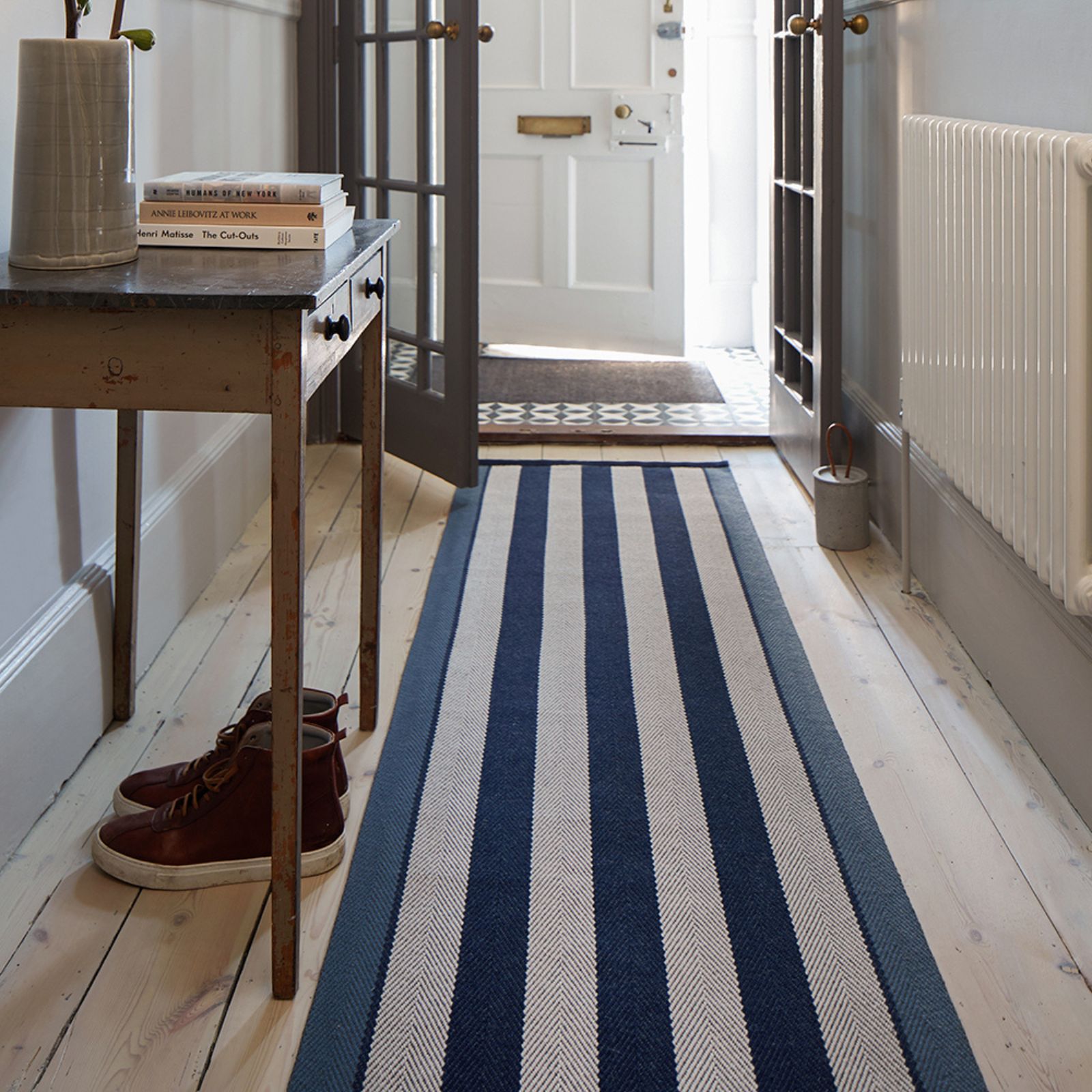
2. Select the best material option for your lifestyle
Hallways are high-traffic areas, with everyone coming and going, often with shoes on and sometimes with pets in tow. With all that daily wear and tear, it’s crucial to choose a runner material that can stand up to the challenge.
Runners made from polypropylene or recycled plastic threads are a smart choice for families because they’re incredibly durable and handle muddy shoes, spills, and stains with ease. Plus, some options, like those from Ruggable, are machine washable, making cleanup a breeze.
If you prefer natural fibres, Kirsty Barton, Brand Storytelling Manager at Alternative Flooring, has some great advice: 'Wool works brilliantly in the entryway, adding a luxurious and warm touch while remaining hardwearing. Natural textures like sisal, seagrass, or coir are also popular choices due to their tough fibres, versatility, and low maintenance.'
When it comes to natural fibres, there are some great options that can really work in a busy hallway. Wool rugs might be a bit pricier and tend to shed, but they’re tough, hypoallergenic, and can last for years if you take care of them.
Sisal rugs are a fantastic choice if you’re after something naturally stain-resistant, making them a go-to for high-traffic areas. And if you’re looking for something super durable and easy to clean, seagrass runners are a winner thanks to their natural waxy coating.
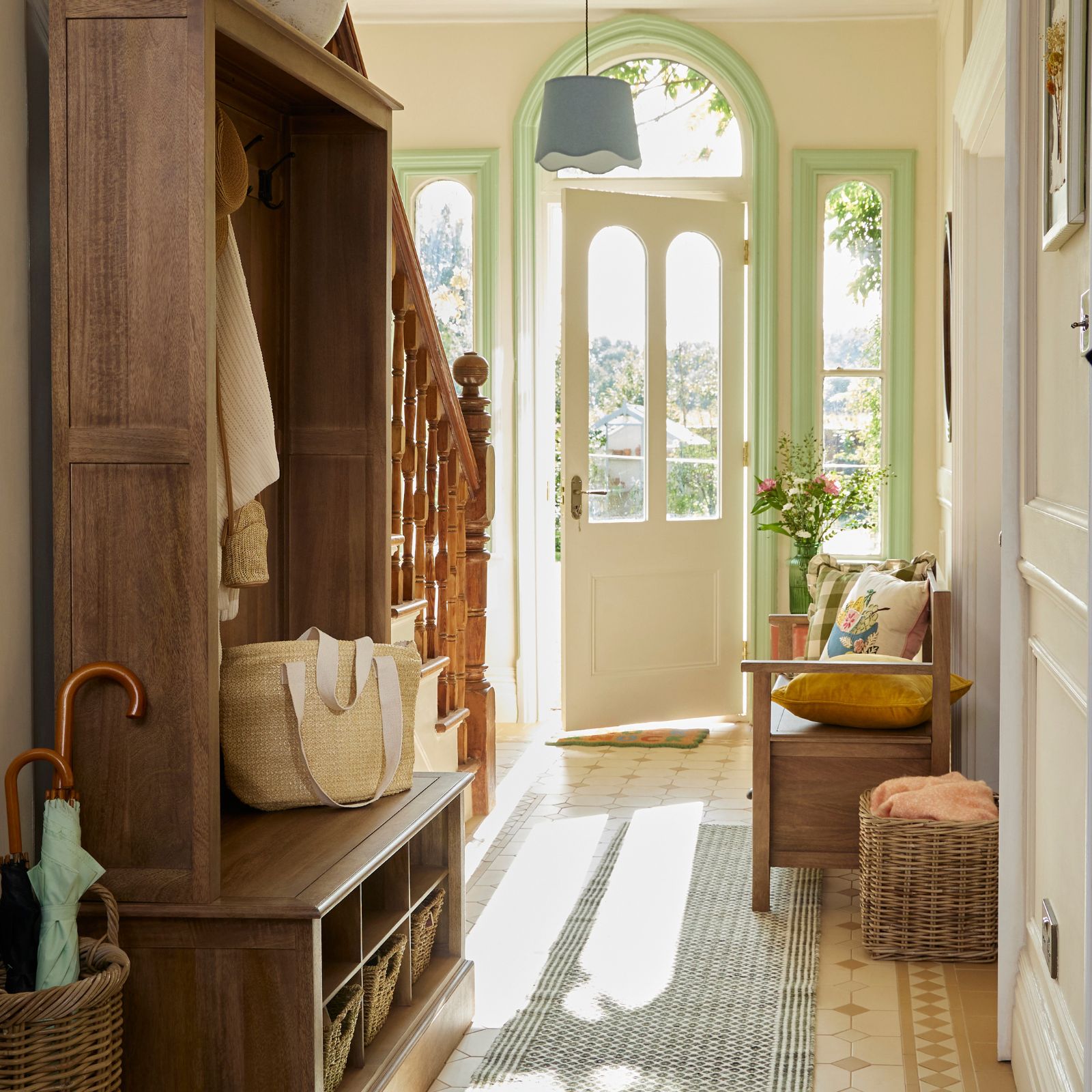
3. Find the perfect colour to complement your space
A colourful runner can be just the thing to bring your hallway colour scheme to life, whether you’re looking to make a bold statement in a neutral space or complement an already vibrant colour scheme. Andy Guard, Creative Director at Roger Oates, puts it perfectly, ‘The hall is a great space to be adventurous with colour and pattern. It’s the perfect way to add warmth and individuality. A bright hallway runner will create an instant impact while carrying colour throughout the heart of the house.’
If your hallway is already awash with colour, try picking a runner that highlights the key shades in your existing scheme, it’s a great way to tie everything together. On the flip side, if your hallway is more neutral, the sky’s the limit. You could go for a subtle touch with a neutral rug featuring a bold, colourful border. Or, if you’re feeling daring, why not go all out with a runner in a single, vibrant colour? It’ll add a lively pop to a modern design. And if you love patterns, a rug with a mix of bright colours can really bring the space to life.
Don’t forget, the colour you choose can also change how your hallway feels size-wise. In a small or narrow hallway, a runner in a light, solid colour can make the space feel bigger by reflecting natural light. On the other hand, deeper colours can cosy things up, making the hallway feel warm and inviting.
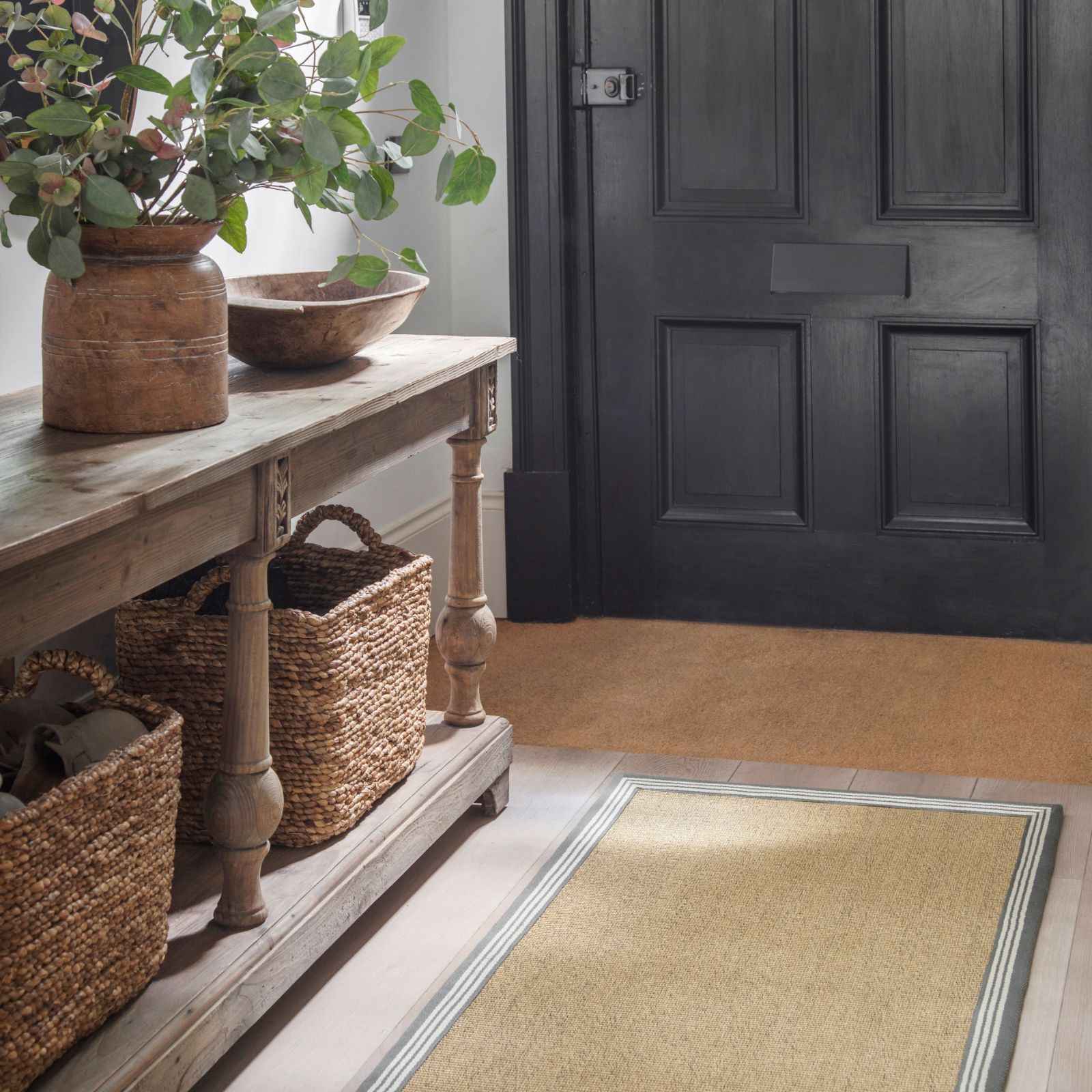
4. Think about the pile height
If your hallway runner is near doors that will open over it, keep an eye on the pile height. It might not seem like a big issue initially, but a door catching on the runner every time you open it can become really annoying and wear out the rug’s corners more quickly.
While tufted and high-pile runners may look plush and inviting, they’re not always practical for high-traffic areas like hallways. Kirsty Darby, Founder of Tate & Darby shares some helpful advice ‘Jute is practical as it is hardwearing, hides the dirt and with its low pile most doors can glide over them, so you are not shaving inches off your doors!
With that in mind, flatweaves and jute rugs are ideal choices for hallways, as their smoother texture and tighter weave allow them to fit seamlessly under low-clearance doors without sacrificing style or comfort.
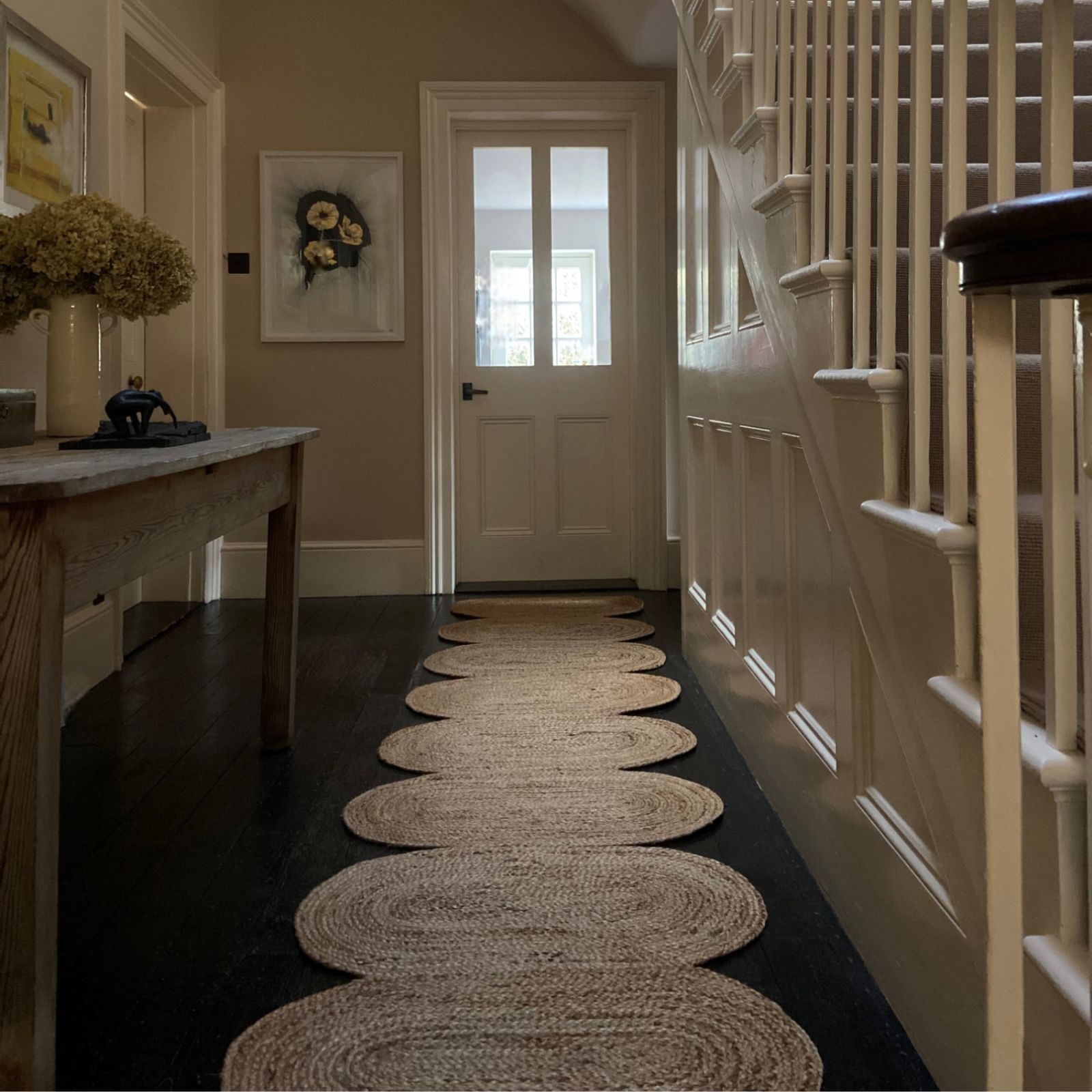
5. Add some personality with prints and patterns
Adding a patterned runner to your hallway flooring ideas can bring some real personality to the space and tie your scheme together. Choosing the right pattern for your hallway is a matter of personal taste, but some styles naturally complement certain schemes better than others.
Cassandra at Ruggable offers some great advice, ‘Start with your space. Is it bohemian, modern, traditional, or farmhouse? Then, look for a runner rug pattern that complements the theme. For a modern look, consider geometric or abstract patterns. For a farmhouse vibe, a Persian rug with a slightly distressed area could be perfect. And for a bohemian or eclectic feel, try a pattern with intricate floral details’.
Stripes are an all time classic favourite, especially if you’re working with a smaller hallway. They have a lengthening effect, creating the illusion of a more extended space. Similarly, horizontal stripes can make a narrow hallway feel wider and more open. Geometric designs are fantastic for contemporary homes with strong architectural lines, while vintage florals or Eastern-inspired patterns add a charming touch to traditional or vintage-style homes.
Plus, one of the best perks of patterned rugs is that they camouflage dirt beautifully, meaning you can go longer between cleanings, a real win for high-traffic areas!
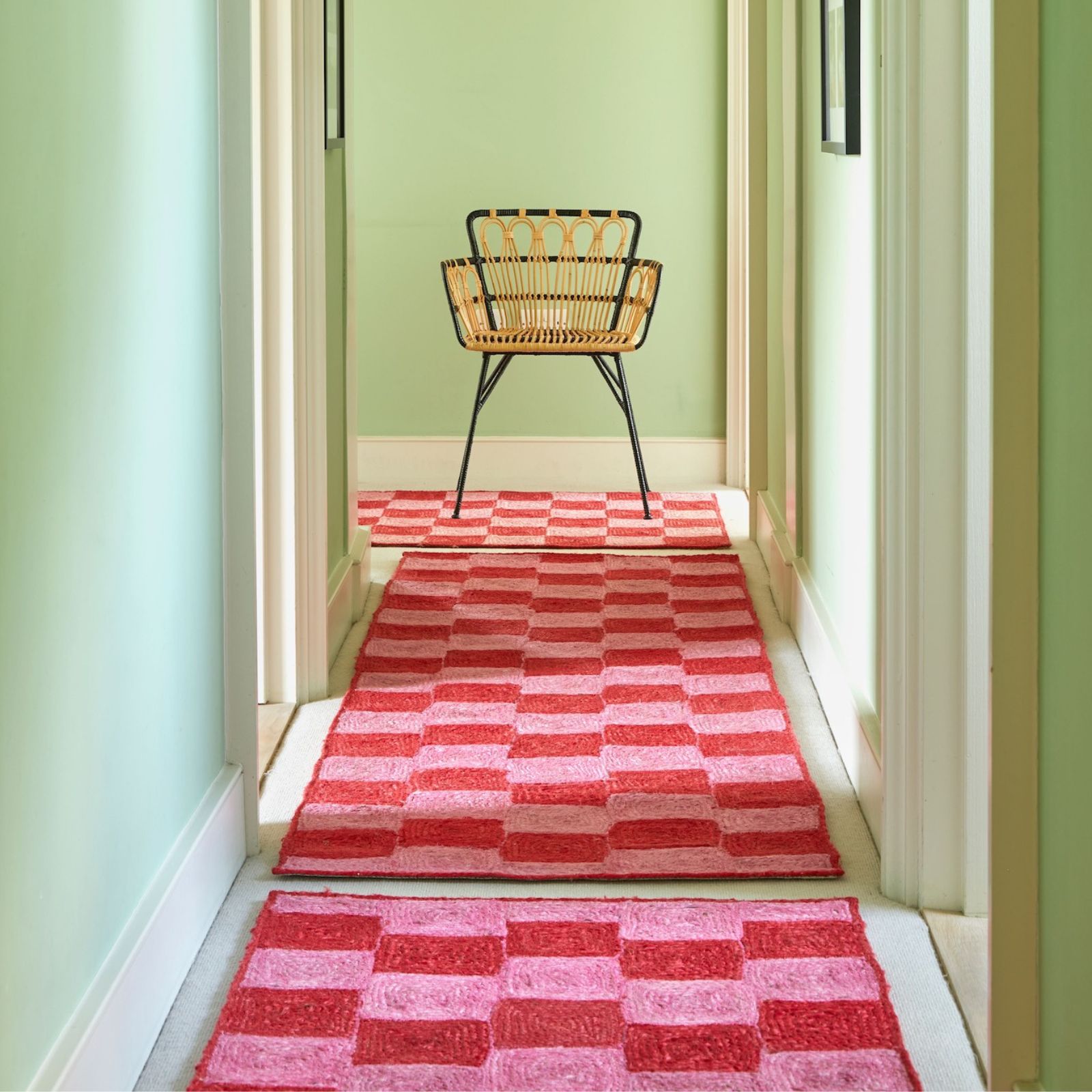
6. Borders or no borders?
If you’re into a minimal, neutral, or natural style, a simple, solid-coloured runner can be a perfect fit. But if you want to add just a splash of colour or tie in a key accessory in your hallway, a runner with a border might be just what you need.
Kirsty from Alternative Flooring puts it well, ‘Borders on a hallway runner can really elevate the whole look. They let you add a pop of complementary colour for a touch of sophistication or go for a contrasting colour for a subtle yet striking effect. And they look super sharp, too!’.
Plus, if you're thinking about stair runner ideas, choosing a bespoke runner with a matching border can make the transition from stairs to hallway smooth and stylish, keeping everything looking put-together.
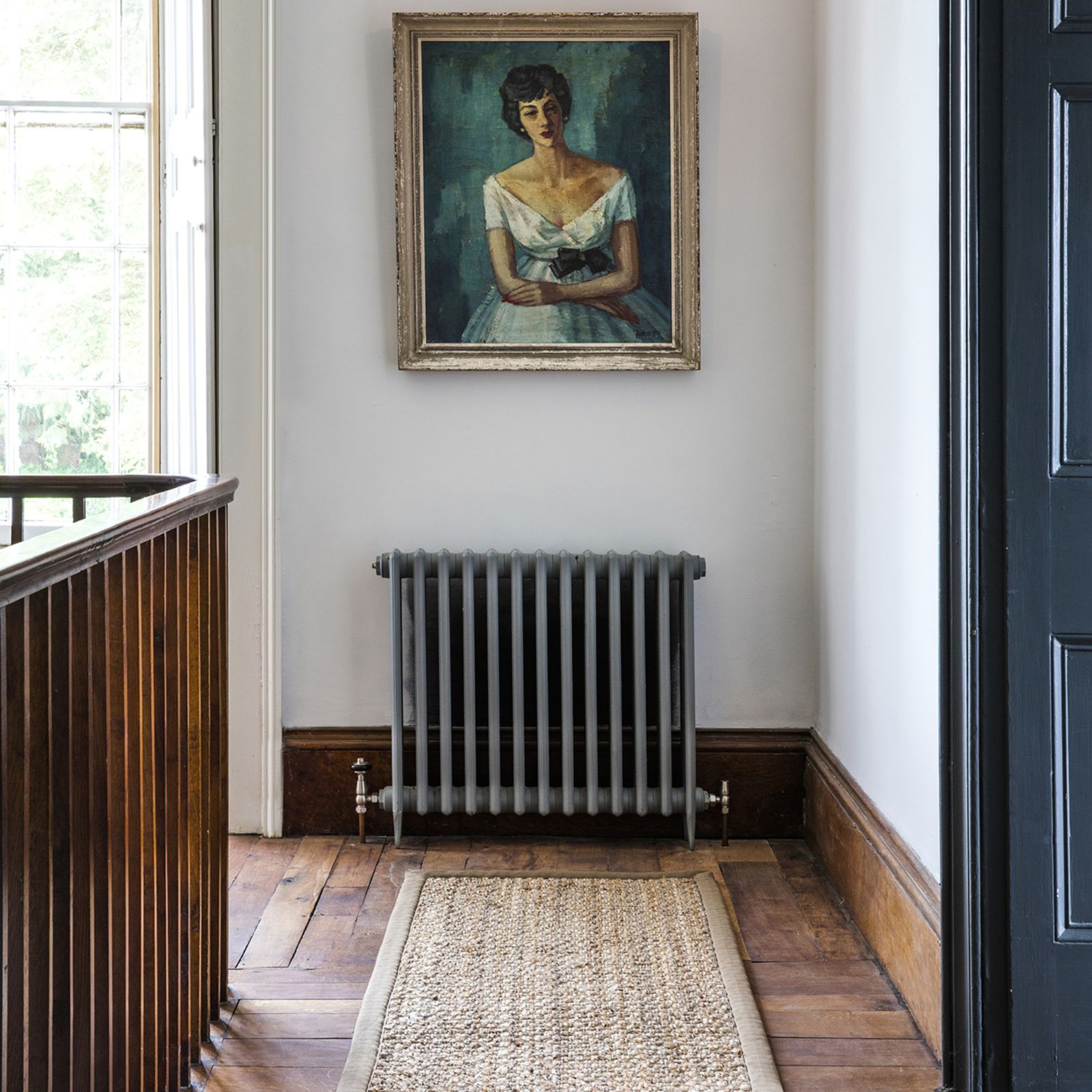
7. Keep it all in place
Last but definitely not least, one of the key things to consider before buying a hallway runner is working out how to keep it securely fixed to the floor. Unlike a living room rug, your hallway runner won’t have furniture to keep it in place, and it’s likely to see more foot traffic. So, to avoid any slips or trips, make sure it’s anchored properly.
Some runners come with a canvas backing, which can help keep them in place, but this might not be enough if you’re laying it on varnished wood or tiles that offer little grip.
Kirsty at Alternative Flooring advises, ‘To keep the hallway runner securely in place, we recommend using a high-quality anti-slip underlay specifically designed for runners. This not only prevents accidents but also adds an extra layer of underfoot comfort’
Add to basket
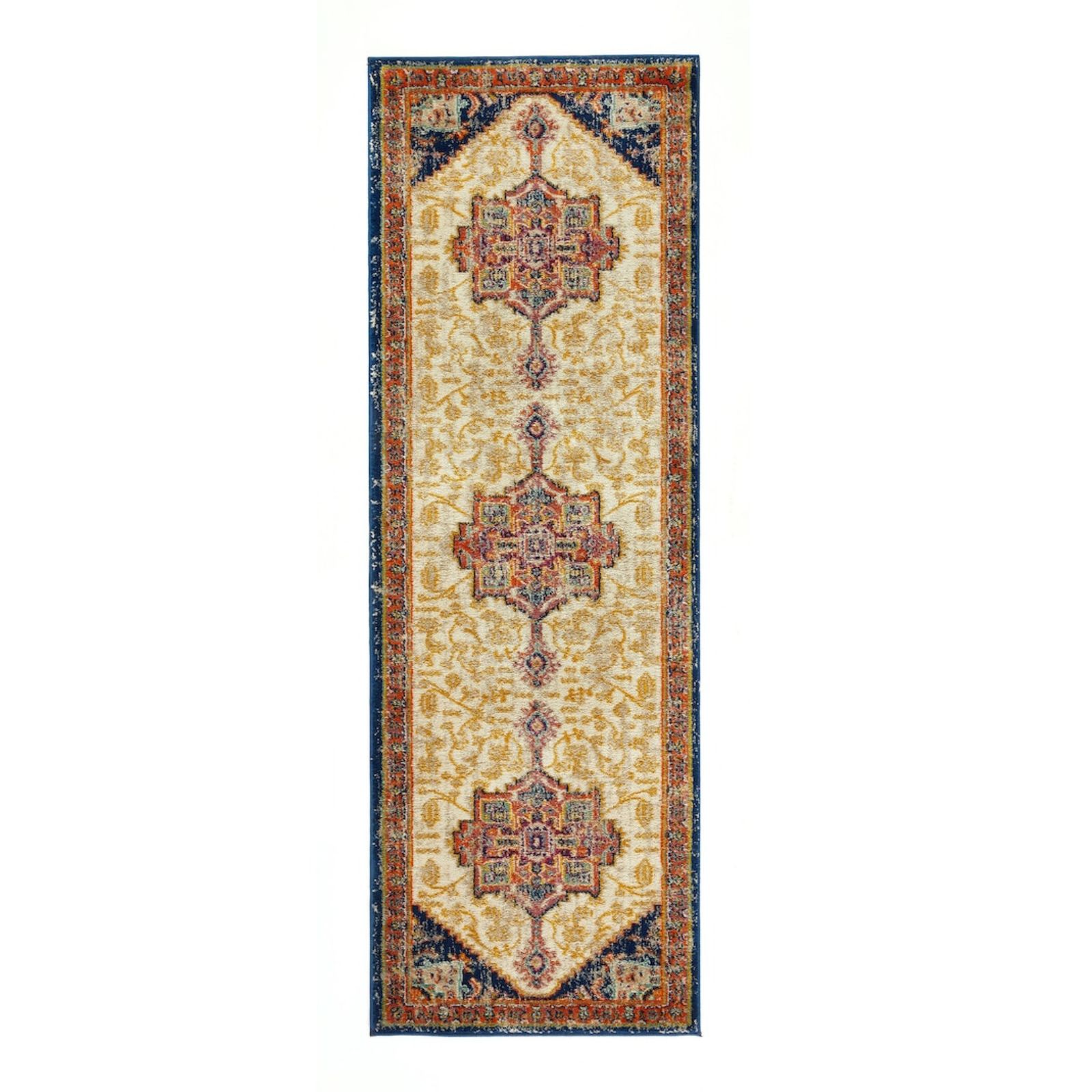
For a cosy, lived-in hallway, this traditional-style runner delivers vintage charm at a great price. Made from 100% heat-set polypropylene, it’s durable, non-shedding, and stylish, offering an authentic aged look without breaking the bank.
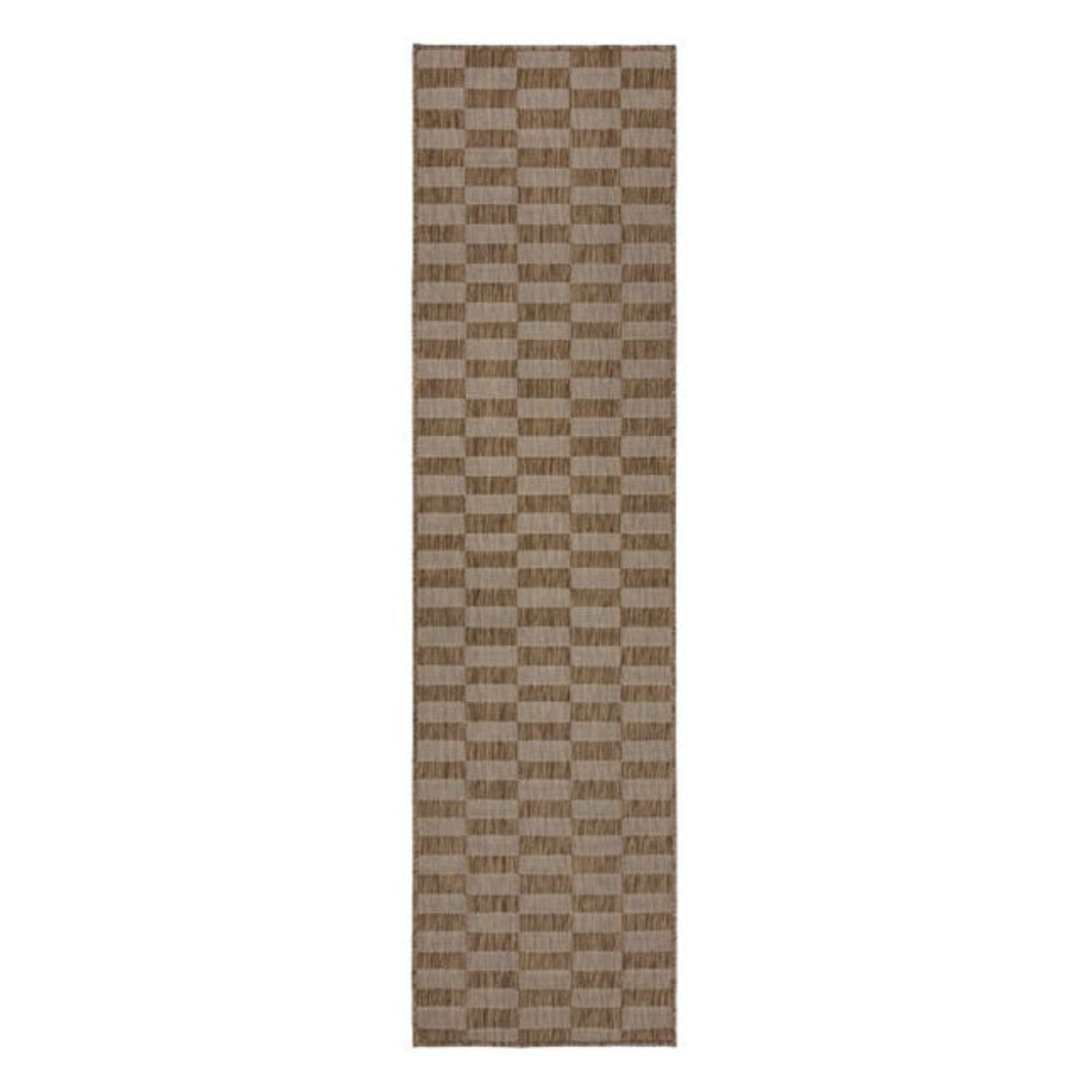
Chequerboard patterns are a contemporary classic, and this stylish indoor/outdoor rug nails that look with a modern edge. Made from 100% polypropylene, it has the chic jute appearance but is super easy to clean. Its natural, earthy colour brings a touch of calm sophistication to any hallway or outdoor space.
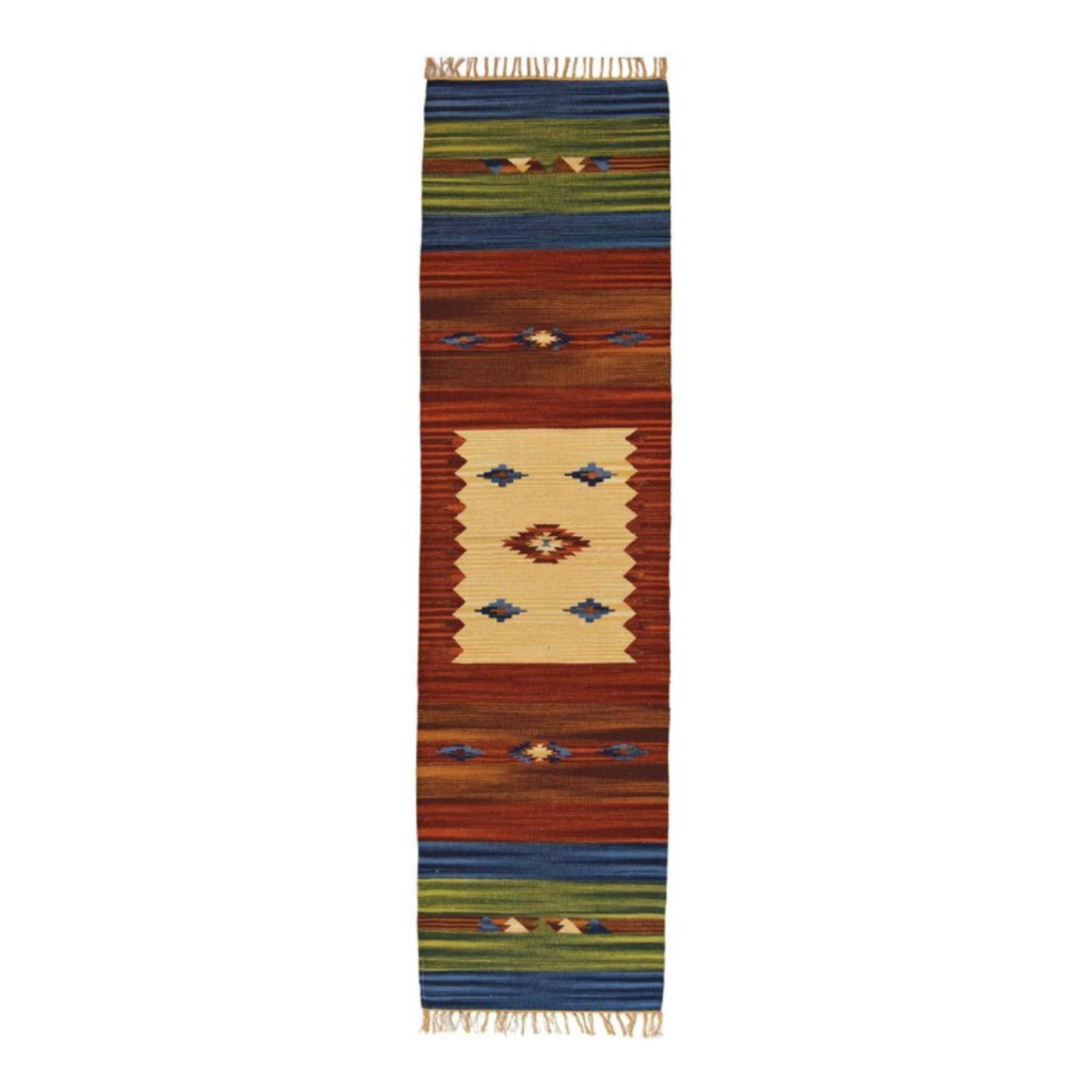
This authentic handwoven cotton Kilim rug will make a bold statement in your hallway with its vibrant Geometric Navajo design, while keeping your feet cosy. The deep, rich colours pop beautifully against dark wood floors and crisp white walls, adding a touch of warmth and style to your space.
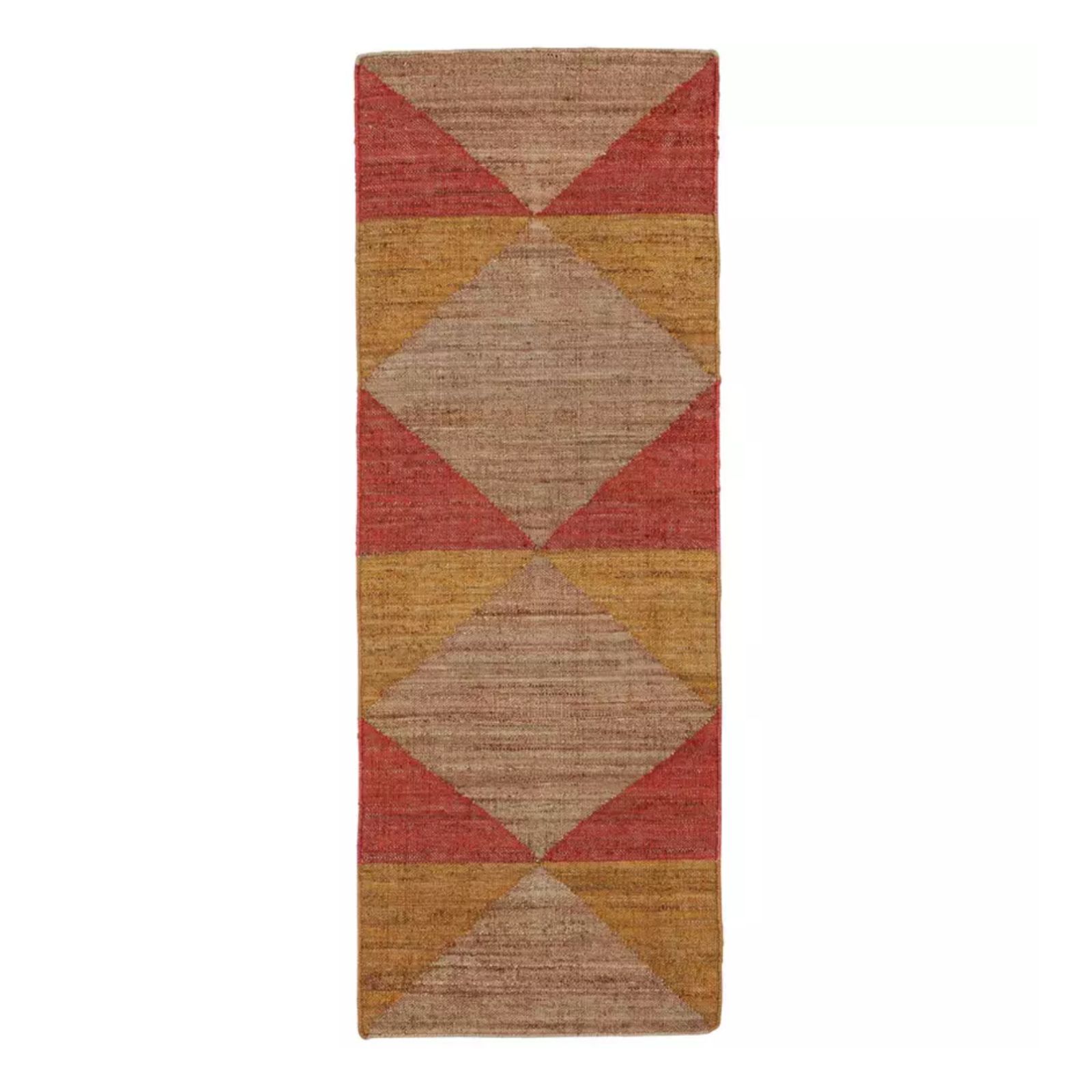
This handwoven 100% jute runner, crafted in India from yarn-dyed jute by Habitat, will instantly elevate your hallway with its vibrant geometric colour block design. It’s not just stylish, it’s soft underfoot, adding a touch of comfort while keeping your space looking fresh.
-
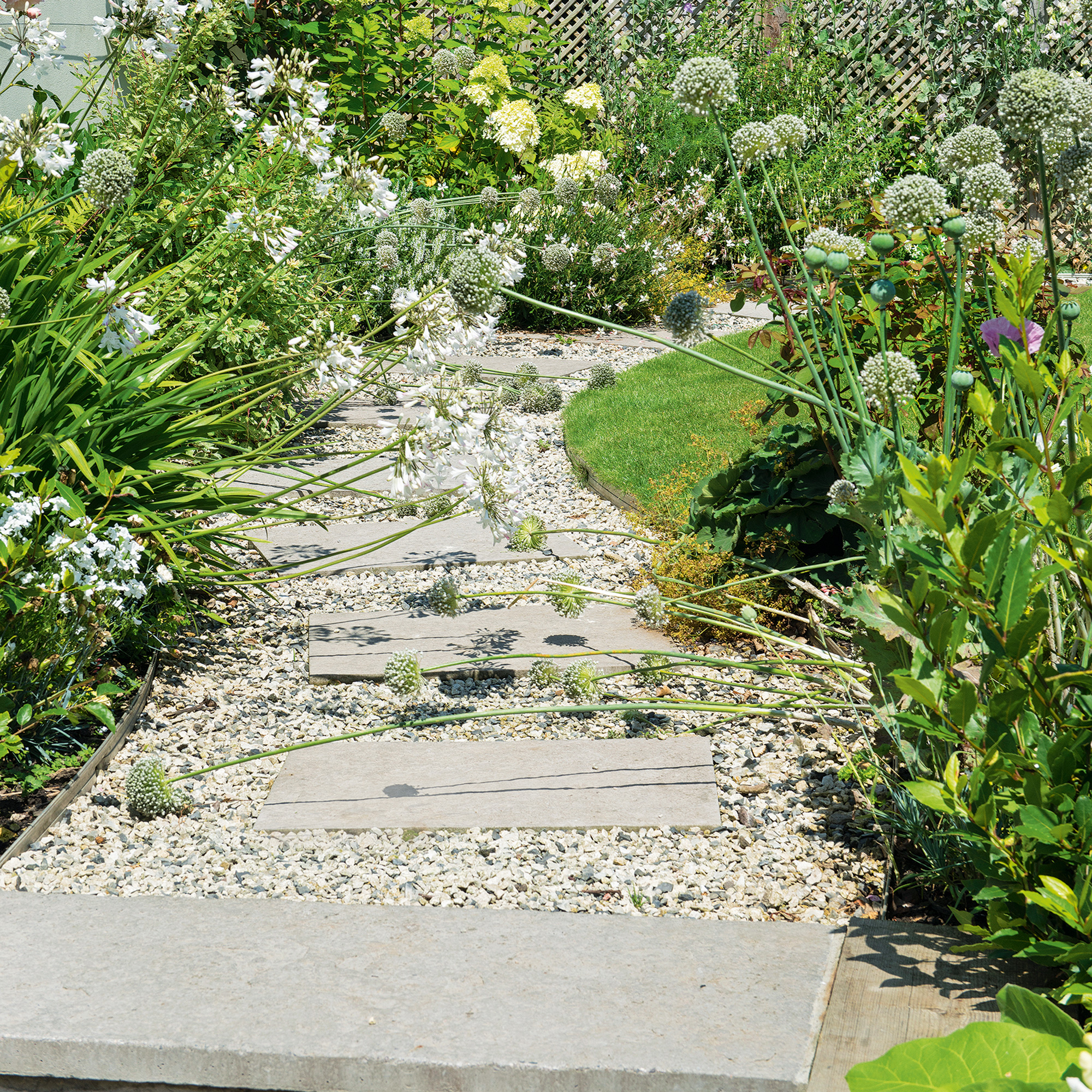 5 brilliant budget alternatives to paving slabs that won't cost the earth
5 brilliant budget alternatives to paving slabs that won't cost the earthLooking to pave your garden on a budget? Try these stand-ins...
By Sophie King
-
 Want to cook like Jamie Oliver? Here's the top-rated pan from his collection
Want to cook like Jamie Oliver? Here's the top-rated pan from his collectionJamie's collaboration with Tefal has led to this casserole dish getting the best user reviews I've ever seen
By Molly Cleary
-
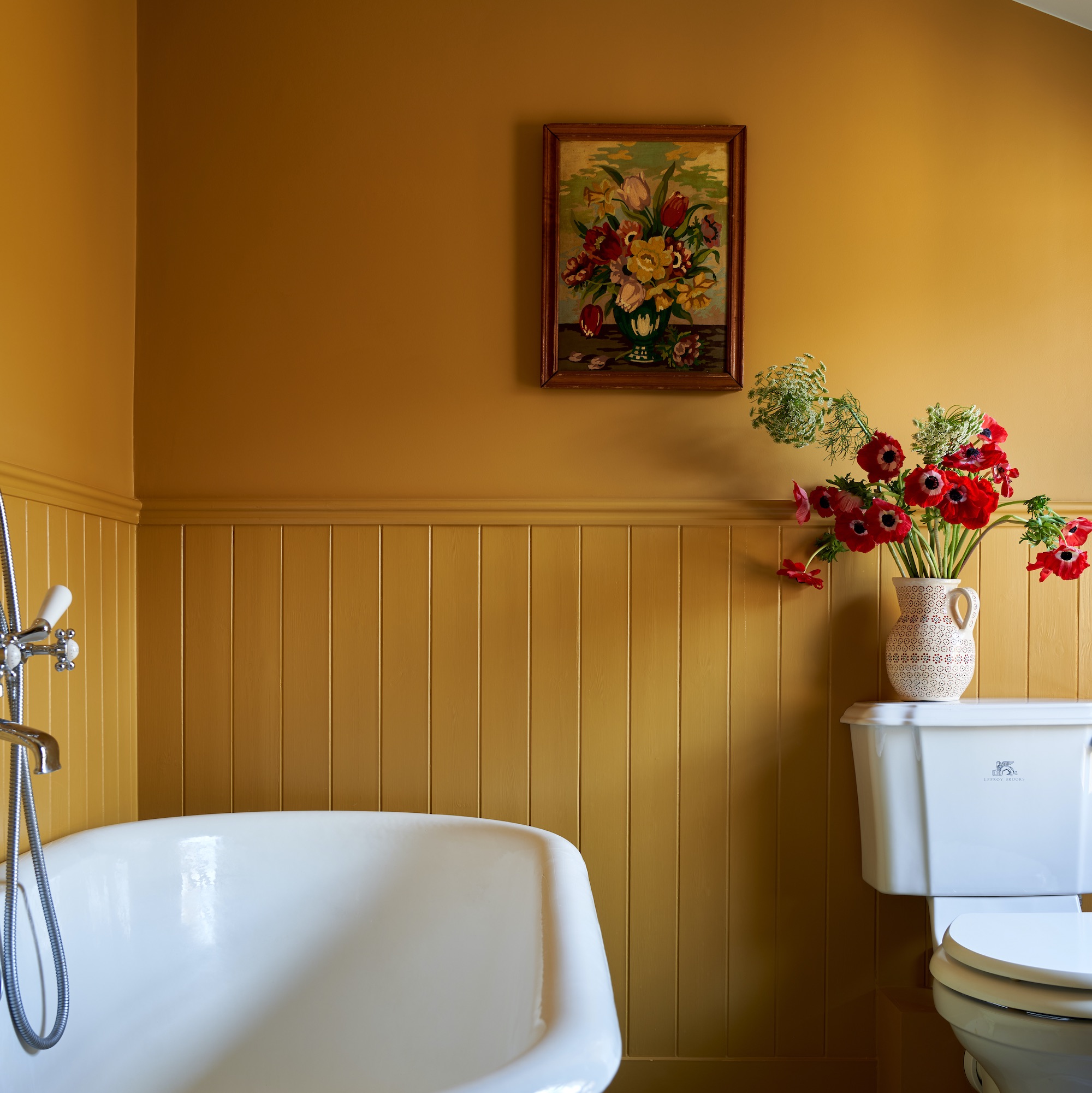 7 best colours to paint a windowless bathroom that will transform the mood of a dark wash space
7 best colours to paint a windowless bathroom that will transform the mood of a dark wash spaceA bathroom without a view needn’t sink your plans for a warm and welcoming retreat
By Linda Clayton
-
 Want to cook like Jamie Oliver? This is the top-rated casserole he uses from his own collection all the time on Instagram
Want to cook like Jamie Oliver? This is the top-rated casserole he uses from his own collection all the time on InstagramJamie's collaboration with Tefal has led to this casserole dish getting the best user reviews I've ever seen
By Molly Cleary
-
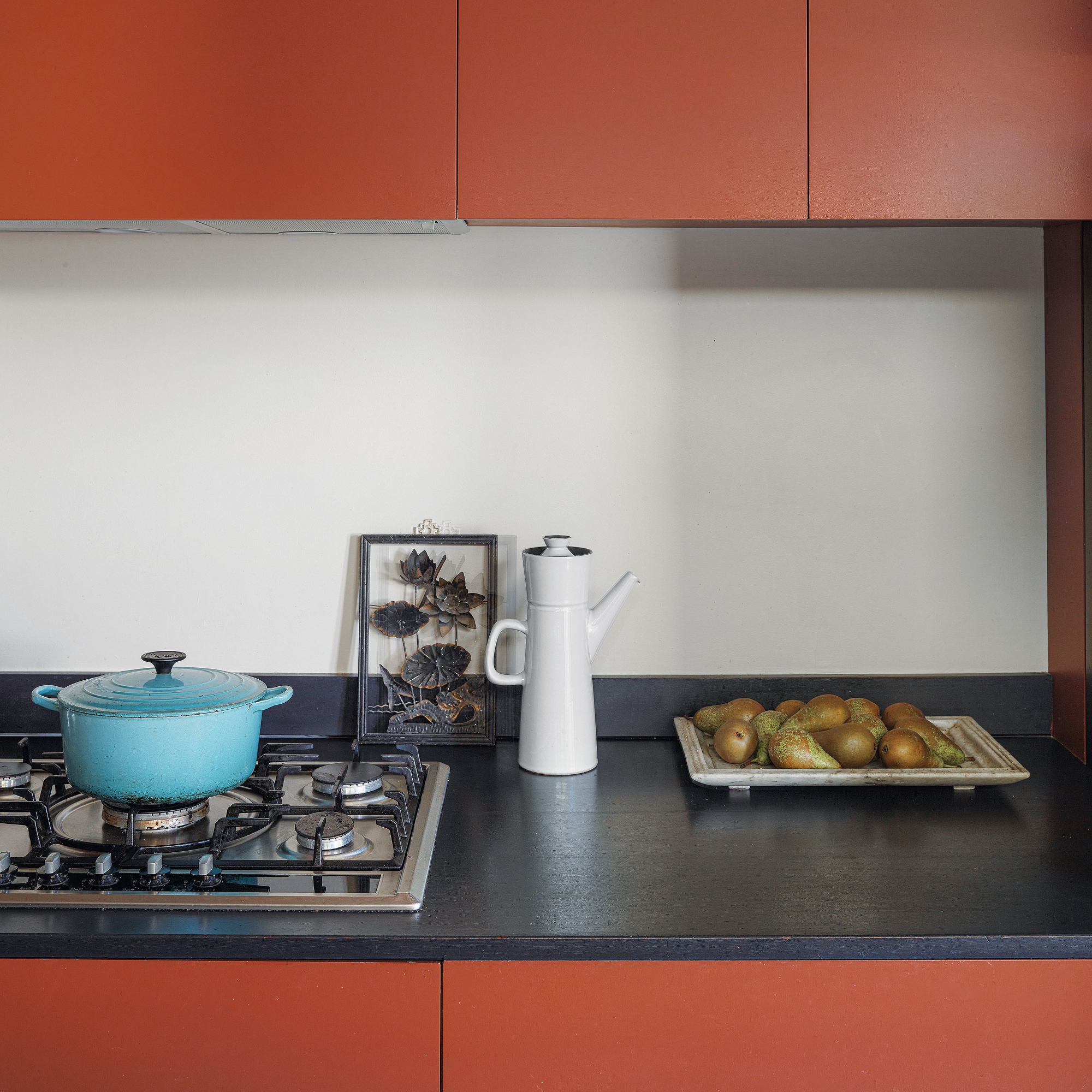 I’ve found a stunning £40 buy that rivals Le Creuset at Wilko - this casserole dish is a dead ringer for one of the most summery colourways
I’ve found a stunning £40 buy that rivals Le Creuset at Wilko - this casserole dish is a dead ringer for one of the most summery colourwaysYou just can't beat finding a great Le Creuset alternative
By Kezia Reynolds
-
 This beautiful mixing bowl is the unexpected star of so many kitchens – including Mary Berry's and the Bake Off tent
This beautiful mixing bowl is the unexpected star of so many kitchens – including Mary Berry's and the Bake Off tentThis earthenware bowl proves that you don't have to spend a huge amount for a classic kitchen addition
By Molly Cleary
-
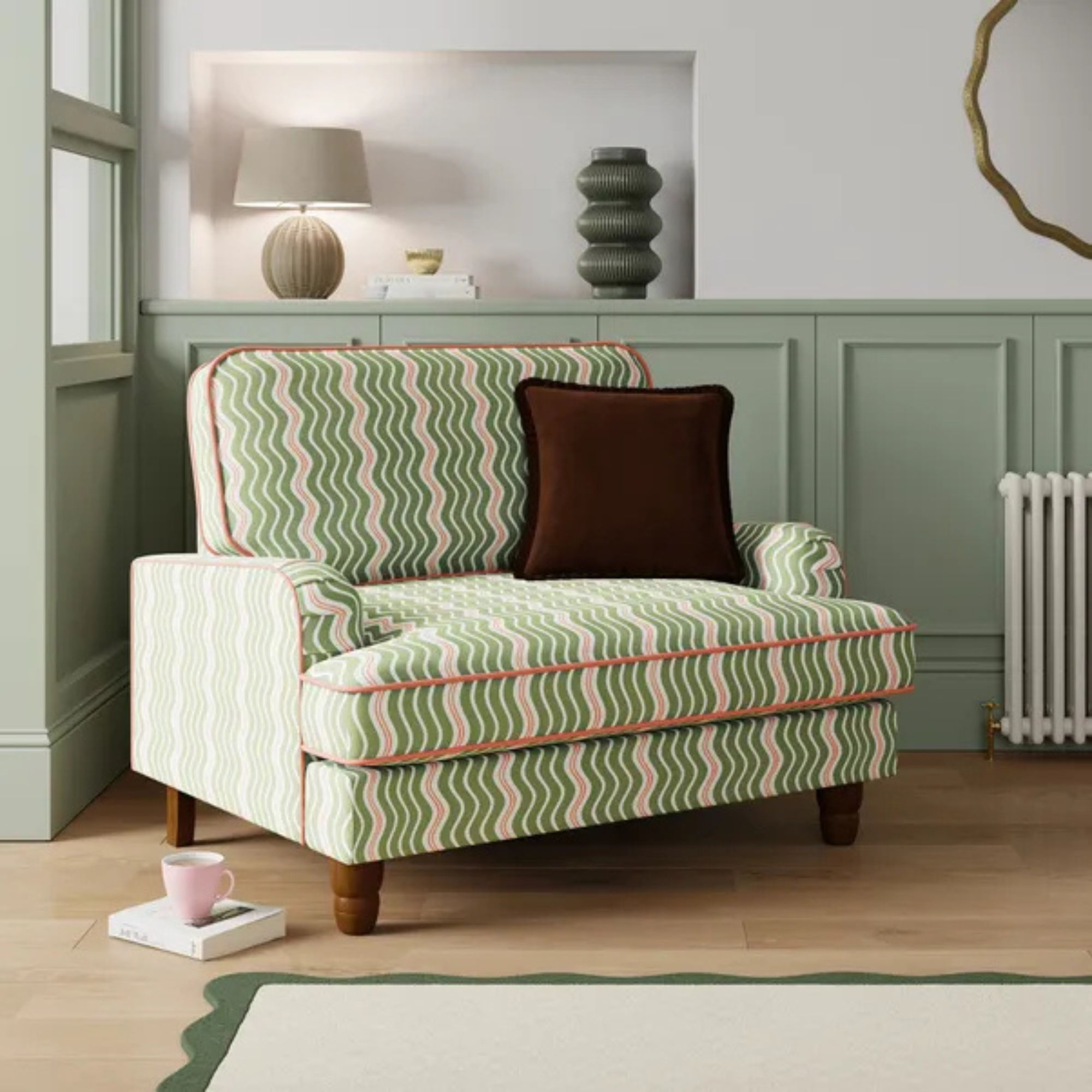 Dunelm has given its cult snuggle chair a new look - it's swapped classic stripes for another emerging pattern trend
Dunelm has given its cult snuggle chair a new look - it's swapped classic stripes for another emerging pattern trendI'm obsessed with this fresh new style
By Kezia Reynolds
-
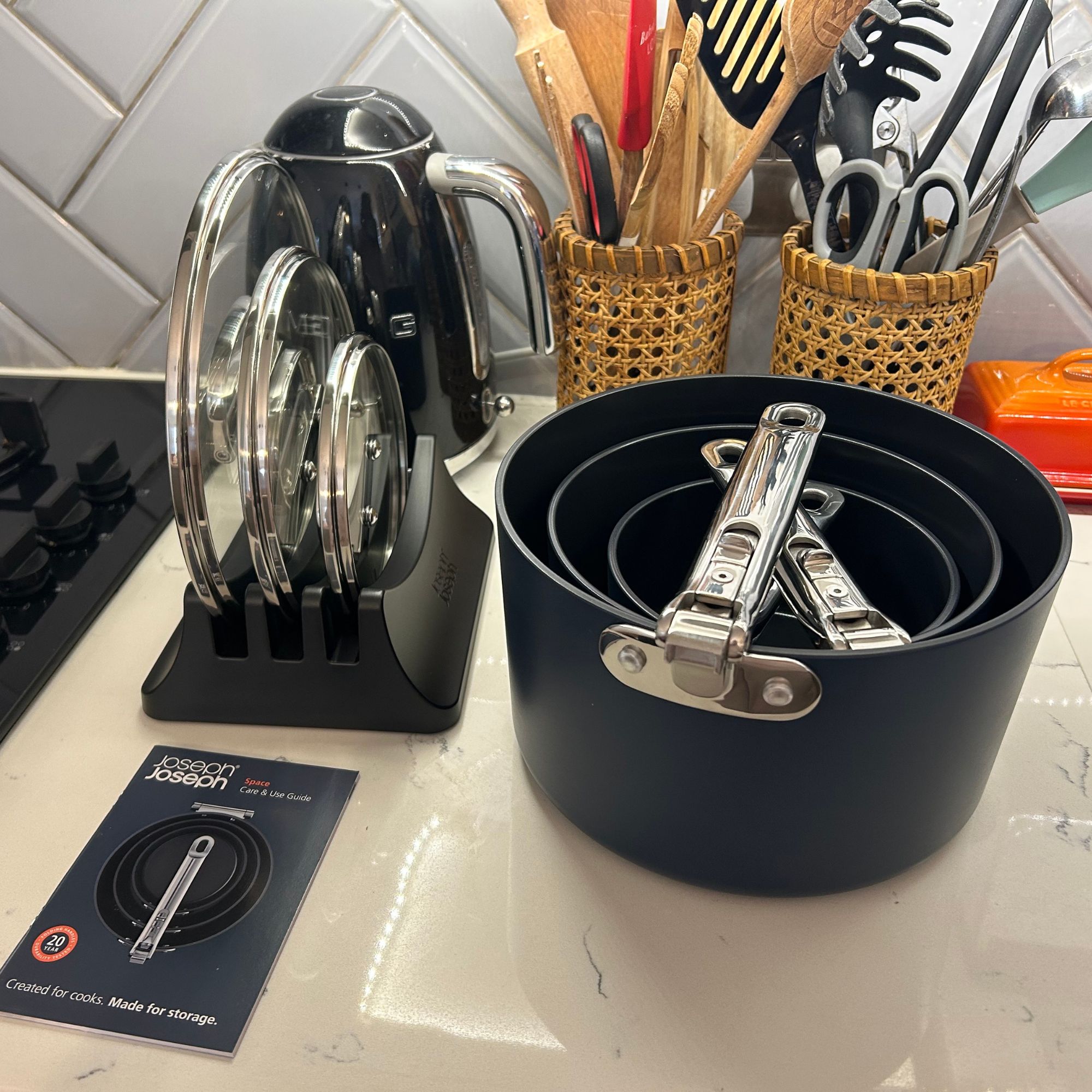 I tried Joseph Joseph's pan set with foldable handles – the space-saving design is just one of the many highlights
I tried Joseph Joseph's pan set with foldable handles – the space-saving design is just one of the many highlightsSmall kitchen? I tested this innovative Joseph Joseph space-savvy set which has foldable handles — and I loved it
By Annie Collyer
-
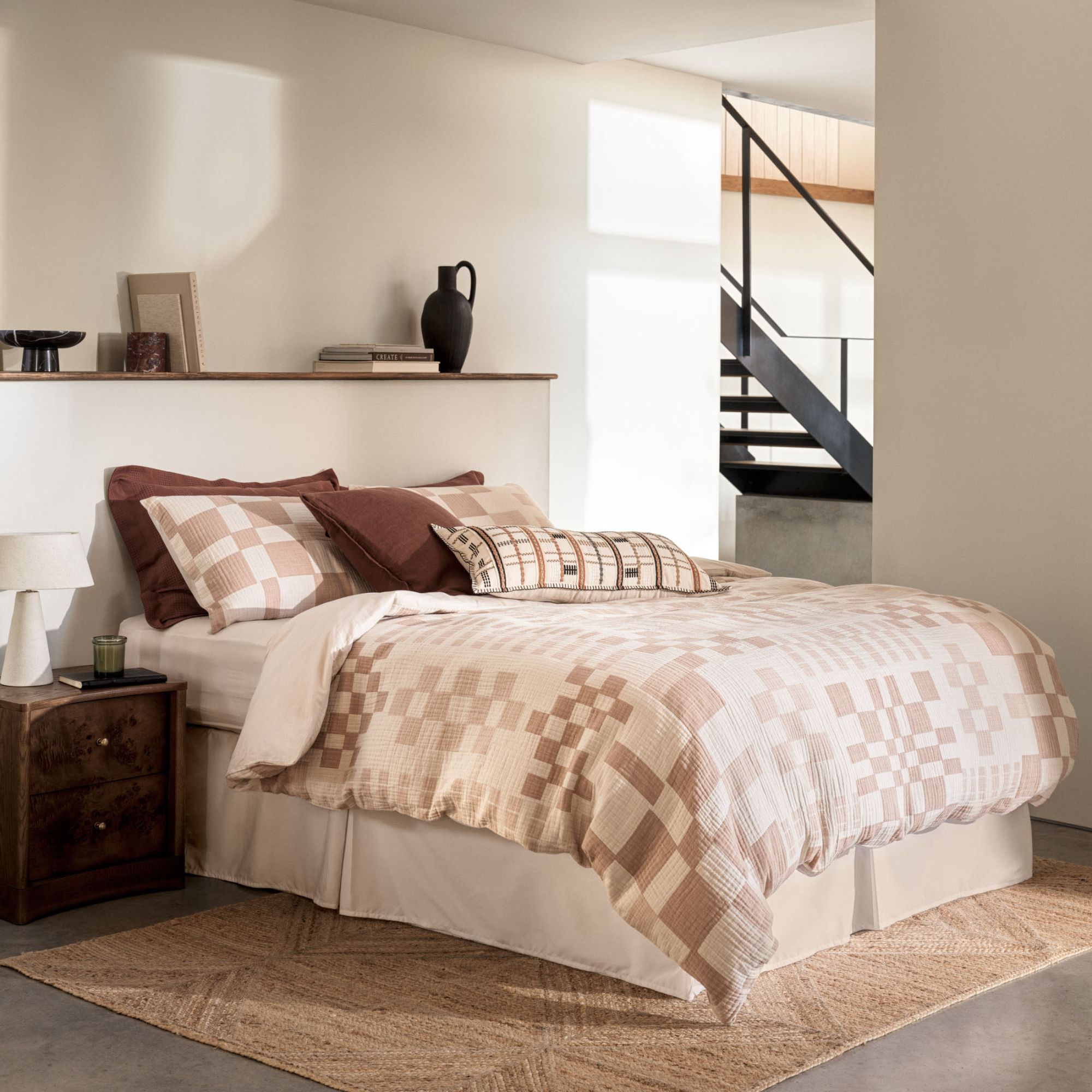 As a stylist, I spend hours looking for bedding for photoshoots, and I just spotted these 6 expensive-looking sets at M&S
As a stylist, I spend hours looking for bedding for photoshoots, and I just spotted these 6 expensive-looking sets at M&SGet a little luxury at a high-street price
By Laurie Davidson
-
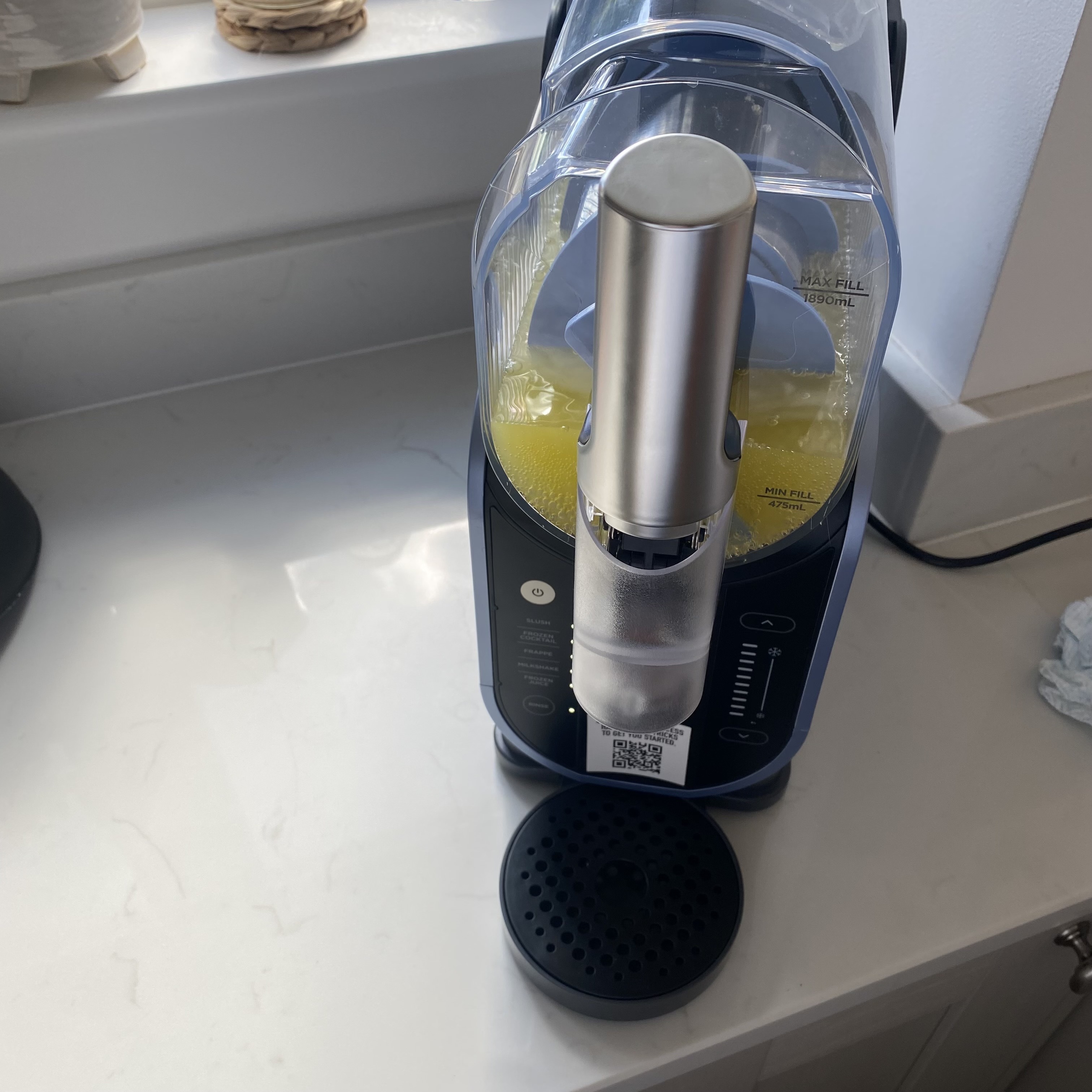 I've been waiting to try out the Ninja Slushi for months – this is what happened the first time I tried it
I've been waiting to try out the Ninja Slushi for months – this is what happened the first time I tried itThe Ninja Slushi is the stuff of dreams for summer entertaining
By Molly Cleary
-
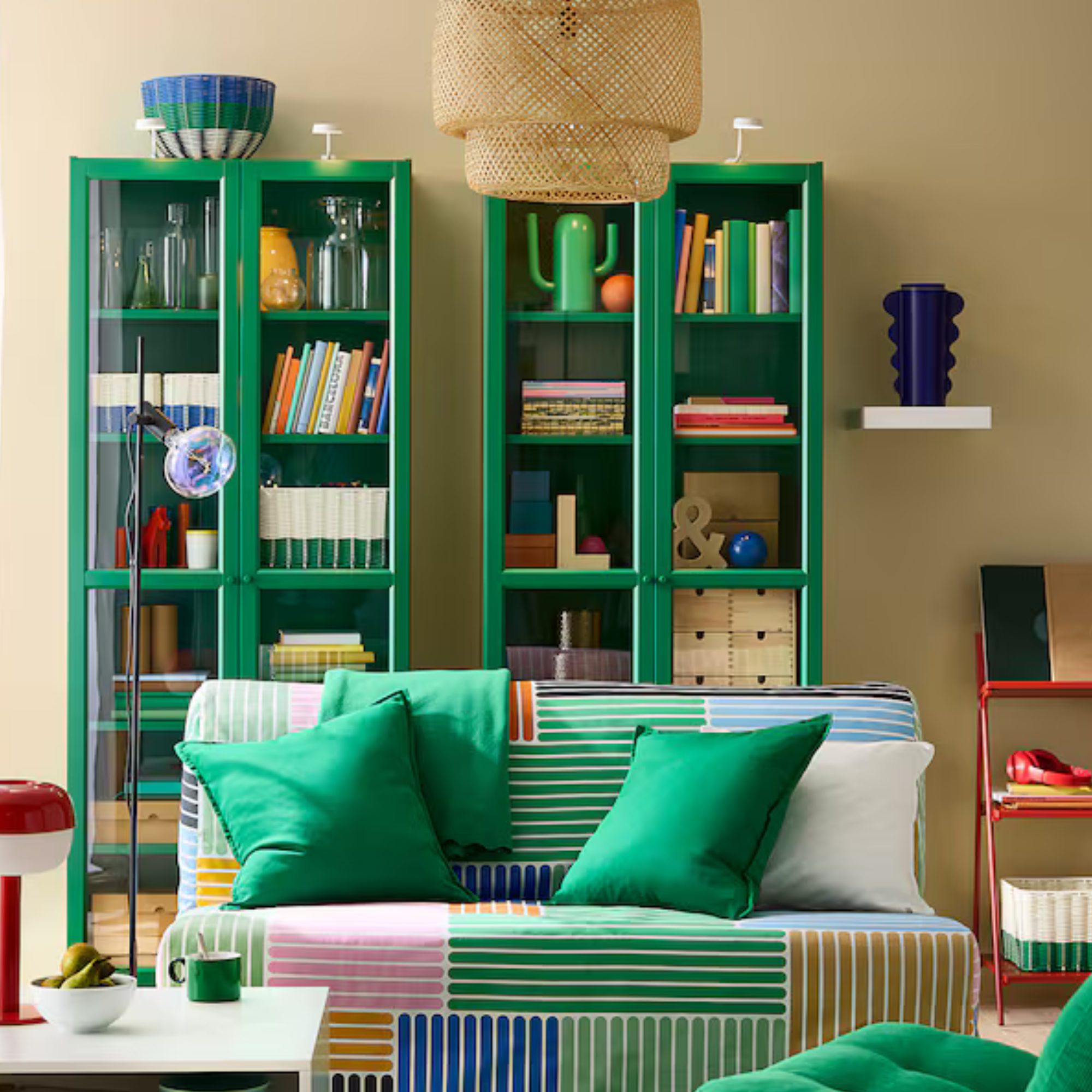 IKEA has drenched its BILLY bookcase in this year’s ‘it’ colour - but you’ll have to act fast if you want to get your hands on one
IKEA has drenched its BILLY bookcase in this year’s ‘it’ colour - but you’ll have to act fast if you want to get your hands on oneI'm obsessed with this gorgeous limited-edition colourway
By Kezia Reynolds
